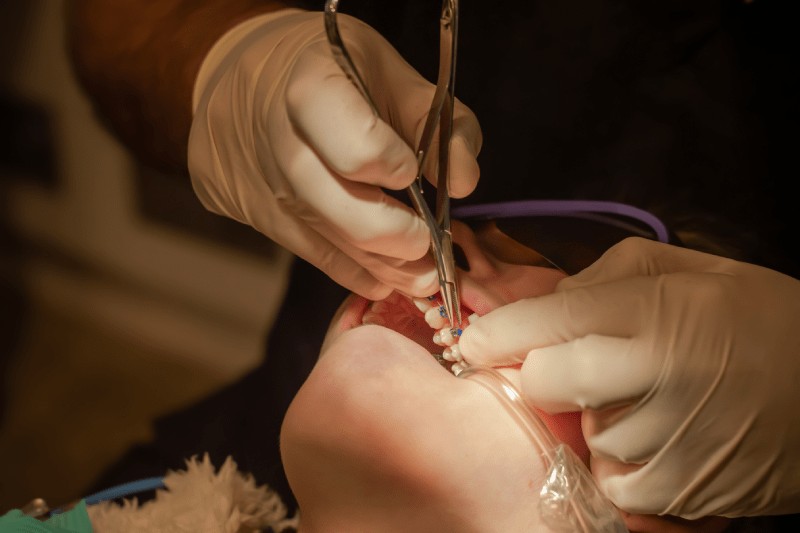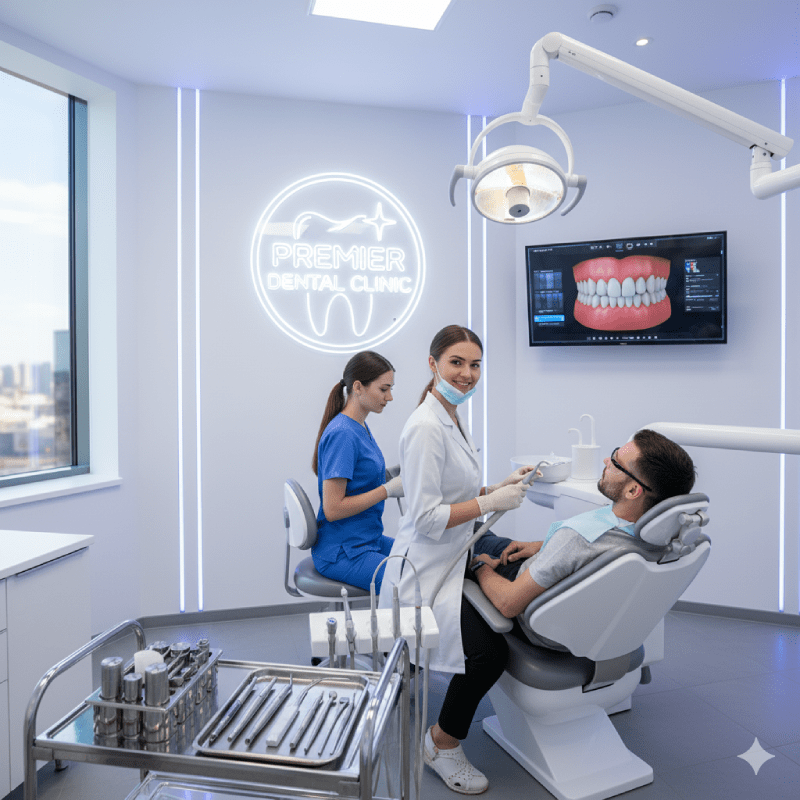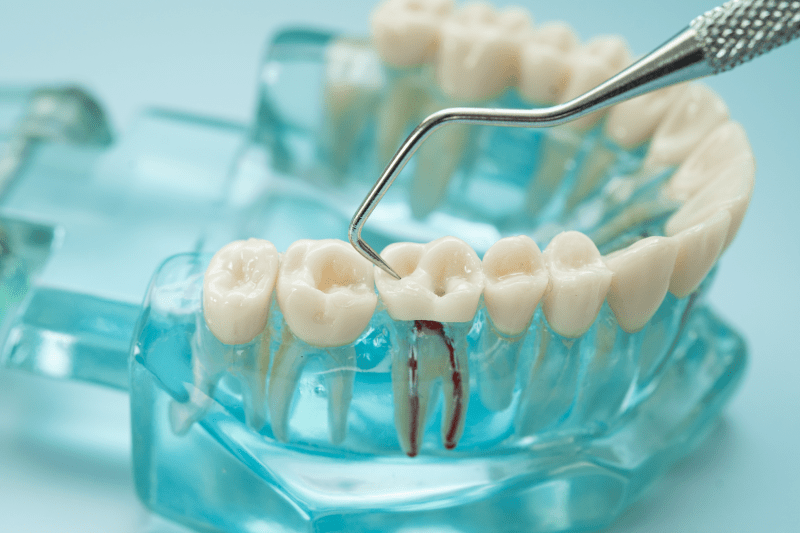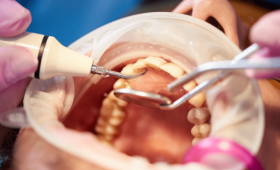Istanbul stands out as a health tourism hub, home to modern dental clinics, state-of-the-art equipment, and skilled dentists with international experience. In addition to offering much more affordable treatments compared to Western countries, comprehensive service packages are available that cover all of the patients’ needs, such as accommodation, transfers, and interpreters. This allows patients to receive high-quality treatment while also having the opportunity to explore a city rich in history and cultural wealth.
What is the Quality of Dental Clinics in Istanbul?
The quality of dental clinics in Istanbul is in line with international standards and often has global accreditations. These clinics are equipped with the latest technology and modern laboratories that strictly adhere to hygiene standards. The dentists are specialized in their fields and continuously update their knowledge through domestic and international training. This professional and reliable environment ensures that patients can receive treatment with confidence and strengthens Istanbul’s reputation in dental tourism.
Do Dentists in Istanbul Speak Foreign Languages?
Yes, most of the dentists and clinic staff who serve international patients in Istanbul can communicate fluently in multiple foreign languages, especially English. Many clinics have specially assigned, multilingual patient coordinators and interpreters to ensure patients feel comfortable throughout the entire treatment process. This allows for clear and accurate information exchange about the treatment plan, procedures, and all other details.
How Long Do I Need to Stay for the Treatment?
The required length of stay for treatment varies depending on the type and complexity of the procedure. A simple teeth whitening or filling can be completed in a single day, while procedures like veneers or crowns generally require a stay of 3 to 7 days. For more complex procedures like implant treatment, the first stage can be completed within a few days, followed by a waiting period of a few months for the implant to fuse with the jawbone.
Why Are the Prices More Affordable Than in Western Countries?
The main reason why dental treatment prices in Istanbul are more affordable than in Western countries is that the overall operational costs (labor, rent, taxes) are lower. This does not mean that the quality of the materials and technology used is compromised. Many clinics use internationally standardized materials to provide high-quality services. The affordable prices make Istanbul an attractive destination for both local and international patients.
What Preparations Should I Make Before Starting the Treatment?
Before starting the treatment, one of the most important steps is to arrange an online pre-consultation with your chosen clinic. During this consultation, you may be asked to share recent photos of your teeth and existing X-rays. This allows the dentist to evaluate your oral health and create a personalized treatment plan and cost estimate for you. Knowing this plan in advance ensures that your treatment process is more efficient and seamless.
How Are Travel and Accommodation Arrangements Made?
Many dental clinics in Istanbul offer comprehensive service packages that facilitate travel and accommodation arrangements for international patients. These packages usually include airport transfers, hotel reservations, and a patient coordinator who will accompany you throughout the treatment. Thanks to these services, patients can focus solely on their treatment and enjoy their comfortable experience in Istanbul without having to deal with all the logistical details.
How Long Does the Treatment Process Take?
The treatment process varies greatly depending on the planned procedures. For example, applying veneers to a few teeth usually takes 3 to 5 days, while a full-mouth implant and crown application can take 7 to 10 days. This process is determined by the dentist’s experience, the lab’s working speed, and the patient’s specific needs. Clinics generally offer flexible appointment schedules to accommodate your travel plans.
Are Flight and Accommodation Costs Included in the Price?
While many clinics do not include flight costs in their treatment packages, they may include services like accommodation and airport transfers in the package price. This provides a great convenience, especially for international patients, and makes costs more predictable. Since the package contents vary from clinic to clinic, it is important to find out in detail which services are included before agreeing to the treatment.
What Are the Warranty Conditions?
Reputable dental clinics offer a certain warranty period for the procedures performed and the materials used. This warranty is generally valid for crowns and veneers made of materials like porcelain or zirconium. The warranty conditions vary depending on the type of treatment and the procedures applied. Patients are advised to carefully read the warranty terms and learn all the details before the treatment is completed.

What Are Dental Veneers and What Are They Used For?
Dental veneers are aesthetic restorations made of thin porcelain or composite materials that are bonded to the front surface of the teeth. These veneers are used to correct the color, shape, size, and alignment of teeth. They improve the appearance of chipped, broken, spaced, or stained teeth, creating a flawless smile. They allow you to achieve an aesthetic look without harming the natural structure of your teeth.
In Which Cases Are Dental Veneers Applied?
Dental veneers are usually applied to individuals with aesthetic problems. These conditions include teeth with permanent discoloration or stains, gaps between teeth, irregular tooth shape or size, and minor chips or cracks. Veneers are one of the most preferred methods, especially for addressing aesthetic concerns in the front teeth.
Is the Dental Veneer Procedure Painful?
The dental veneer procedure is generally painless. The dentist applies local anesthesia while preparing the teeth for the veneer, so the patient does not feel any pain or discomfort. It is normal to experience a slight sensitivity for a few days after the procedure, but this condition is usually easily controlled with painkillers and disappears in a short time.
How Many Days Does the Treatment Process Take?
Dental veneer treatment is generally completed within 3 to 7 days. In the first session, the teeth are prepared, and impressions are taken. These impressions are sent to the lab to prepare custom veneers. In the second or third session, the prepared veneers are permanently bonded to the teeth. This duration can vary depending on the patient’s and the clinic’s schedule.
Which Veneer Materials Are Most Commonly Used?
The most preferred materials for dental veneers are porcelain (ceramic), zirconium, and E-max. Porcelain and E-max veneers provide excellent aesthetic results by transmitting light like natural teeth. Zirconium, on the other hand, offers a combination of durability and an aesthetic appearance. The most suitable material is decided after a detailed examination by a dentist.
What is the Lifespan of Veneers?
With good oral hygiene and regular dental check-ups, dental veneers can last for 10 to 15 years, or even longer. The durability of veneers depends on the quality of the material used and the patient’s eating habits. Avoiding biting on hard foods and protecting the teeth extends the lifespan of the veneers.
Do Dental Veneers Look Natural?
Yes, modern dental veneer materials are designed to mimic the light-reflecting properties of natural teeth. When applied by a skilled dentist, the veneers perfectly match the other teeth, providing a completely natural look. This way, an aesthetic and natural result is achieved instead of an artificial smile.
Do Veneers Cause Tooth Decay?
No, properly applied and cared-for dental veneers do not cause tooth decay. On the contrary, they can protect the front surface of the teeth and prevent the formation of cavities. The important thing is for the edges of the veneer to fit the tooth perfectly and for them to be regularly cleaned with brushing and flossing.
Are Teeth Reduced for Dental Veneers?
For porcelain veneers, a minimum amount of enamel may be filed down from the front surface of the teeth. This procedure allows the veneer to fit the tooth perfectly and achieve a natural look. For thicker veneers like zirconium crowns, the teeth may be reduced more, according to the thickness of the veneer.
How Should Dental Veneers Be Cared For?
The care for dental veneers is the same as the care for natural teeth. You should brush your teeth at least twice a day and use dental floss. Special toothbrushes or a water flosser can also be used to prevent plaque buildup around the veneers. This regular care extends the lifespan of your veneers and protects your oral health.
What is a Dental Implant and How is It Applied?
A dental implant is an artificial tooth root made of titanium that is placed into the jawbone to replace missing teeth. A dental prosthesis or crown is then attached to this implant. The implant mimics the root of a natural tooth, restoring chewing function and an aesthetic appearance.
Who Can Get Dental Implants?
To get a dental implant, a person must have good overall oral health, sufficient jawbone density, and a strong bone structure to support the implant. The dentist will use imaging methods like panoramic X-rays and tomography to evaluate whether your jawbone is suitable for an implant.
Is the Dental Implant Surgery Painful?
Dental implant surgery is generally a painless procedure because it is performed under local anesthesia. The patient does not feel any pain or discomfort during the surgery. There may be a slight pain or swelling for a few days after the surgery, but this can be easily managed with painkillers.
How Long Does the Recovery Process Take?
The recovery process after dental implant surgery is the time required for the implant to integrate with the jawbone (osseointegration). This process can generally take between 3 to 6 months. At the end of this period, when the implant is firmly fused with the bone, a permanent dental crown or prosthesis is placed on top.
What Implant Brands Are Used in Turkey?
Modern dental clinics in Turkey use high-quality implant brands that are internationally recognized and have certifications like FDA or CE. Globally known brands like Straumann, Nobel Biocare, and Alpha-Bio Tec are frequently preferred. These brands ensure that the implant is long-lasting and reliable.
What is the Lifespan of an Implant?
Dental implants can be used for a lifetime with proper care and regular check-ups. Titanium implants fuse with the bone, forming a very strong foundation. The lifespan of the implant depends on the patient’s oral hygiene, smoking and alcohol consumption, general health status, and regular dental check-ups.
Does Smoking and Alcohol Consumption Affect the Implant?
Yes, smoking and alcohol consumption can negatively affect the success of the implant. Smoking reduces blood flow in the mouth, making it difficult for the implant to fuse with the bone and slowing down the healing process. It also increases the risk of infection. For the success of implant treatment, it is recommended to limit or completely quit smoking and alcohol.
What is the Difference Between a Single Tooth Implant and a Full Mouth Implant?
A single tooth implant is applied in cases where only one tooth is missing, while a full mouth implant is preferred when all teeth or multiple teeth are missing. In a full mouth implant, usually 4 to 6 implants are used for the entire jaw, and a fixed prosthesis is placed on top. This is a comprehensive solution that fully restores chewing function and aesthetics.
Can Patients with Bone Resorption Get an Implant?
It may not be possible to directly place an implant in patients with bone resorption (atrophy). However, with modern bone augmentation procedures (bone grafting, sinus lifting), the jawbone can be made suitable. These procedures provide sufficient bone volume for the implant to be placed securely. The dentist will evaluate your bone condition and determine the most suitable treatment plan.
How Many Stages Does Implant Treatment Consist Of?
Implant treatment generally consists of three main stages. The first stage is the surgical placement of the implant into the jawbone. The second stage is the healing process during which the implant fuses with the bone. The final stage is the placement of a permanent restoration like a prosthesis, crown, or bridge on top of the implant after the healing process is complete.

What is a Dental Crown and in Which Cases is It Used?
A dental crown is a covering that completely caps and protects a damaged, decayed, or broken tooth. It is used to restore both the aesthetic appearance and the functional integrity of the tooth. Crowns are used to strengthen a weakened tooth, cover large fillings, serve as a prosthesis on top of a dental implant, or to correct the color and shape of teeth for aesthetic purposes.
Are Zirconium Crowns Different from Porcelain Crowns?
The biggest difference between zirconium and porcelain crowns is the material they contain. Traditional porcelain crowns usually have a metal substructure, while zirconium crowns are metal-free. Thanks to the light-transmitting nature of zirconium, a much more natural and aesthetic appearance is achieved, and the grey reflections that can be seen at the gum line with metal crowns do not occur.
How Are Dental Crowns Placed?
The dental crown placement process is completed in two or three visits. In the first session, the tooth is prepared by being reduced, and an impression of the tooth is taken. This impression is used to prepare the custom crown in the lab. In the second session, the prepared crown is temporarily fitted to the tooth, and its fit is checked. In the third session, the crown is permanently bonded to the tooth.
Is Getting a Dental Crown Painful?
The process of getting a dental crown is painless because it is done under local anesthesia. The dentist numbs the area while preparing your tooth, so you do not feel any discomfort. A slight sensitivity lasting a few days after the procedure is normal and can be easily alleviated with over-the-counter painkillers.
What is the Lifespan of Crowns?
When made from high-quality materials and cared for well, dental crowns are long-lasting. The lifespan of a crown generally varies between 10 to 15 years. This duration depends on your oral hygiene, eating habits (such as avoiding hard foods), and regular dental check-ups.
Do Dental Crowns Look Natural?
Modern zirconium and porcelain crowns are specially designed to mimic the appearance of natural teeth. The dentist adjusts the color, shape, and size of the crown to match your other teeth. This makes it almost impossible to distinguish the crown from your natural teeth.
How Should Dental Crowns Be Cared For?
The care for dental crowns is the same as for natural teeth. You should brush your teeth at least twice a day and use dental floss. You can also use special dental floss or a water flosser to prevent plaque buildup under and around the crown’s edges. Regular dental check-ups are the key to maintaining the health of your crowns.
Do Crowns Cause Tooth Decay?
No, crowns do not cause tooth decay. However, if hygiene is not maintained well in the area where the crown meets the tooth, cavities can form in this area. Therefore, regular and careful cleaning around the crowns is vital to minimize the risk of cavities.
Do Dental Crowns Cause Tooth Sensitivity?
A temporary sensitivity to hot and cold may be experienced in the teeth for the first few days after the crown placement. This sensitivity is normal. However, this condition usually disappears in a short time. If the sensitivity continues for a long time, it is recommended to consult a dentist.
How Many Stages Does Dental Crown Treatment Consist Of?
Dental crown treatment consists of stages such as examination and planning, preparing the tooth and taking impressions, manufacturing the crown in the lab, and finally, permanently bonding the crown to the tooth. These stages are usually completed in 2 or 3 visits, depending on the patient’s condition.


